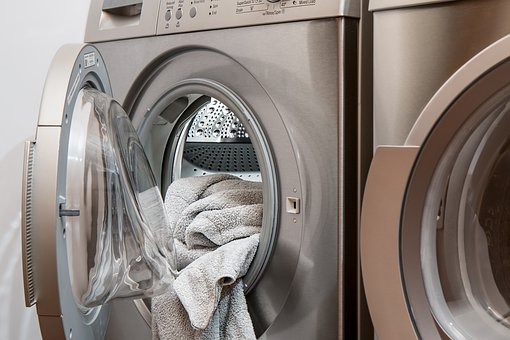While we rely heavily on chemical products in household tasks, crop cultivation, manufacturing, and so forth, at work and at home, the truth is that not all of these products are good for our well-being and that of the environment.
Some of them are hazardous, and inflammable, whereas others can cause rapid or gradual deleterious effects on your health depending on how often you’re exposed to them. The harsh reality is that most of these chemical products are lurking in your home and depending on how they’re handled and stored; they can be a real health hazard for you and your family, especially the kids and pets.
Without further ado, let’s take a look at some chemical products that are harmful to your health.
1. Pesticides
Often used to eliminate pests in the garden or home, there is a plethora of pesticides that have been found to cause a myriad of negative effects on the human body.
While some of these effects are mild, Dr. Todd Watts says in a blog post “10 Pesticides That Could Harm Your Mitochondria” (https://microbeformulas.com/blogs/microbe-formulas/10-pesticides-that-could-harm-your-mitochondria) that some chemical products have ingredients whose unpleasant side effects could go up to the cellular level, enough to harm your mitochondria. Mitochondria are tiny organelles found in every cell of the human body, and their main job is to produce energy by breaking down oxygen, and glucose in a process called cellular respiration.

In addition to being potentially carcinogenic, common pesticide ingredients such as glyphosate, Trichlorfon, Fenpyroximate, Rotenone, and Paraquat, among others, are associated with various health effects of distorted mitochondria function, including Alzheimer’s, Parkinson’s, cancer, diabetes, gut disorders, and cardiovascular disease.
This is part of the reason many nations have adopted standards that regulate pesticide levels in commercially grown plants.
2. Household Bleach
While household bleach is beneficial in many ways, it also contains various chemicals that can be potentially harmful to your health if their concentration exceeds a certain threshold. For instance, most bleach products contain sodium hypochlorite, which can cause irritation to the eyes, skin, throat, and nose in high concentration.
Accidentally ingesting this chemical product may also be harmful to your gut flora, leading to a wide range of gut-related problems along with stomach irritation. Also, chemical products used to treat common household pests such as ticks, bedbugs, and fleas contain chemical compounds that could lead to headaches, dizziness, nausea, and twitching.
3. Laundry Detergents
There are various types of laundry detergents, depending on the type of dirt and stains they are designed to help get rid of.
The most common types, however, are the non-ionic, anionic, and cationic detergents. The latter is the most toxic class, which, when ingested, can result in severe convulsions, shock, nausea, and vomiting. Depending on the ingested amount, the victim could also end up in a coma.
On the other hand, non-anionic detergents could cause eye and skin irritation upon contact, as well as with allergies such as asthma. This calls for proper handling and storage of laundry detergents at all times.

4. Insecticides
Since time immemorial, man has always had his ways around getting rid of vermin, and one of the most common ways in the modern day is the use of insecticides. However, it’s sad that some insecticides are known to contain chemical ingredients and compounds similar to the ones found in pesticides such as those used to fight ticks and fleas.
Diazinon, permethrin, chlorpyrifos, and propoxur are just a few of these chemicals, which could have negative health effects like dizziness, headache, nausea, and respiratory problems, upon inhalation or ingestion. When using insecticides at home, it’s advisable to cover all your food, dishes, and other items or surfaces you may get into direct contact with.
Get rid of any food substance that you suspect is contaminated with the insecticide and ensure you clean all surfaces thoroughly with soap and water after applying the product.
5. Other Household Cleaners and Products
There’s also a wide range of household cleaners that may harm your health. For instance, carpet and upholstery cleaners are known to contain chemical compounds such as perchloroethylene, ammonium hydroxide, and naphthalene, which could harm your health when ingested accidentally.
Glass cleaners, dishwashing products, oven cleaners, and toilet bowl cleaners are other chemical household cleaning products to be watchful of when it comes to handling and storage. Some air fresheners used in bathrooms and living rooms will also contain volatile organic compounds (VOCs) such as formaldehyde, whose inhalation or contact could cause allergies. Studies have also found it to be potentially carcinogenic.
As you can see, we’re constantly exposed to various health risks posed by the chemical products that we use in everyday living. However, what matters most is how you handle and store them. With the above tips on some of the most common chemical products that could hurt your health, you can exercise extra caution or even avoid them where possible.





